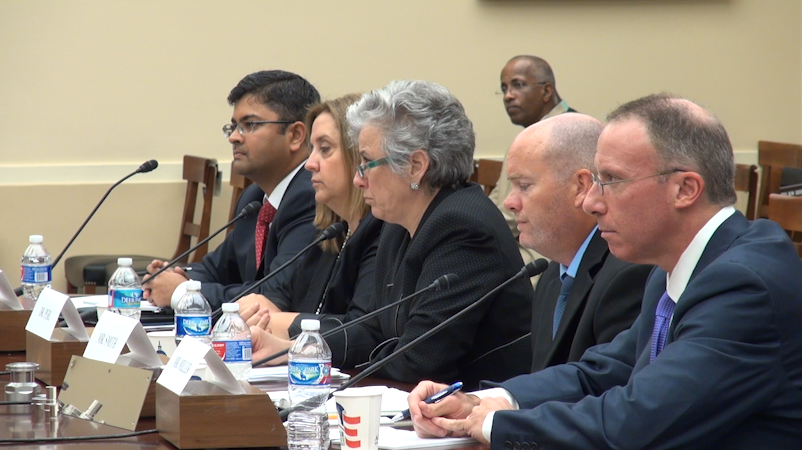WASHINGTON – Two House panels examined Thursday the potential benefits of new technologies, including a “germ-zapping” robot, which would help prevent hospital-acquired infections at Veterans Affairs hospitals. The hearing comes after recent reports citing deficiencies in medical care within veterans’ hospitals.
“In the worst performing hospitals, which include some VA hospitals, up to 10 percent of patients are harmed by these infections,” said Rep. Lamar Smith, R-Texas, Chairman of the Science, Space and Technology Committee. “In-hospital mortality rates among patients who have contracted infections are about five times higher than among patients who were not infected.”
Approximately 1.7 million hospital-acquired infections occur in U.S. hospitals each year, resulting in up to 99,000 deaths and an estimated $20 billion in health care costs, according to the Center for Disease Control. Traditional hospital-acquired diseases include nosocomial pneumonia, Legionnaires’ disease, E. coli, MRSA and C. difficile.
“What is additionally astounding is that the infection rates at some VA hospitals exceed the rates at private sector hospitals by ten times or more,” said Rep. Paul Broun, R-Ga., chairman of the oversight subcommittee.
“It is important to realize that hospital-acquired infection rates will never be zero, but can and should be aggressively minimized,” said Rep. Larry Bucshon, R-Ind., Research and Technology Subcommittee Chairman.
Among those testifying were infectious disease specialists and private sector representatives presenting their companies’ anti-infection technologies.
Pharmaceutical drugs are often used to treat hospital-acquired infections, but Buschon said non-pharmaceutical solutions are also an option – and they do not carry antibiotic resistance.
Jeff Smith, president of Electro-Spec, Inc., told lawmakers about Steriplate, a technology made with copper and other antimicrobial metal coatings designed to reduce surface bacteria, both inside and outside of the body.
Morris Miller, chief executive officer of Xenex Disinfection Services, introduced a “house-keeping hero” that kills pathogens and microscopic drug-resistant superbugs. The Xenex robot creates ultraviolet light to destroy the DNA of bacteria.
The robot can disinfect an area within five minutes and has been proven to reduce C. difficile and MRSA infections, Miller said.
“We made promises to our veterans and we must fulfill those promises for those who have sacrificed for all of us to keep us free as a nation,” Broun said. “Our veterans should receive the very best care of anywhere in the country.”


